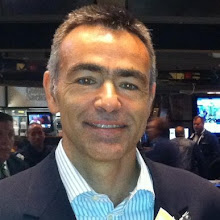A Global Task to End Poverty
It has been a few decades already since the 0.7% goal was a duty for many. Finally, it seems that we see some commitment to make up for the annual deficit that rich countries have been incurring year after year. The "millenium goals", to be accomplished by 2015, set a rigorous schedule in order to achieve the minimum aid levels that experience professionals calculate as needed to stop poverty. Meanwhile, children will still die from hunger and simple illnesses for which they don't even have the most basic vaccines.
Furthermore, it would be even worse if once we manage to have rich countries funding the very needed aid to help poverty then that help is not properly distributed or corruption bites a good chunck of it. That would jeopardize the future of that help the very first day is achieved. Based on that, we ought to manage reform the methodology of distribution to make it effective and secure. It should be distributed wherever is more needed and more lives are saved.
With over one third of the world's population under the poverty threshold, we can't afford to keep going on only focusing on whichever crisis pops up, spreads or a NGO claims may be able to add a specific solution to a specific situation. We need a common strategy. We can not afford wasting a single cent. It may sound like an impossible task, but we should bear in mind that a little more than a century ago Europe and USA had a similar income per capita than Africa today (Sachs - EoP 28).
Far from same-solution-fits-all recommended from Washington DC (Stiglitz – G&D), and besides it is our generation duty to help developing countries where most of their population lives below the minimum conditions for a human being, it is also very much needed for the world economy that these countries overcome their situation and manage to set their own policies as soon as the first needs are covered by the help provided.
We need to set a global benchmark of how to apply for help, and a global institution should take care of those applications. Make efficient the process by requesting well but once, competing for the help by showing how corruption-free funding would be distributed. That should help both requestors and providers. Help is, unfortunately, scarce - all is needed. And most of the efforts should be focused on the distribution, not analizing projects and writing requests. A single entry point should facilitate, make more efficient the outcome and have a more knowledgeable and experienced decisions of where help should be distributed if a single global distribution is in charge and has a global picture of the tragedy on a global scale.
Furthermore, it would be even worse if once we manage to have rich countries funding the very needed aid to help poverty then that help is not properly distributed or corruption bites a good chunck of it. That would jeopardize the future of that help the very first day is achieved. Based on that, we ought to manage reform the methodology of distribution to make it effective and secure. It should be distributed wherever is more needed and more lives are saved.
With over one third of the world's population under the poverty threshold, we can't afford to keep going on only focusing on whichever crisis pops up, spreads or a NGO claims may be able to add a specific solution to a specific situation. We need a common strategy. We can not afford wasting a single cent. It may sound like an impossible task, but we should bear in mind that a little more than a century ago Europe and USA had a similar income per capita than Africa today (Sachs - EoP 28).
Far from same-solution-fits-all recommended from Washington DC (Stiglitz – G&D), and besides it is our generation duty to help developing countries where most of their population lives below the minimum conditions for a human being, it is also very much needed for the world economy that these countries overcome their situation and manage to set their own policies as soon as the first needs are covered by the help provided.
We need to set a global benchmark of how to apply for help, and a global institution should take care of those applications. Make efficient the process by requesting well but once, competing for the help by showing how corruption-free funding would be distributed. That should help both requestors and providers. Help is, unfortunately, scarce - all is needed. And most of the efforts should be focused on the distribution, not analizing projects and writing requests. A single entry point should facilitate, make more efficient the outcome and have a more knowledgeable and experienced decisions of where help should be distributed if a single global distribution is in charge and has a global picture of the tragedy on a global scale.


0 Comments:
Post a Comment
<< Home